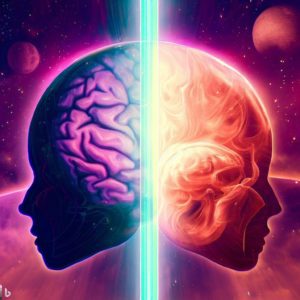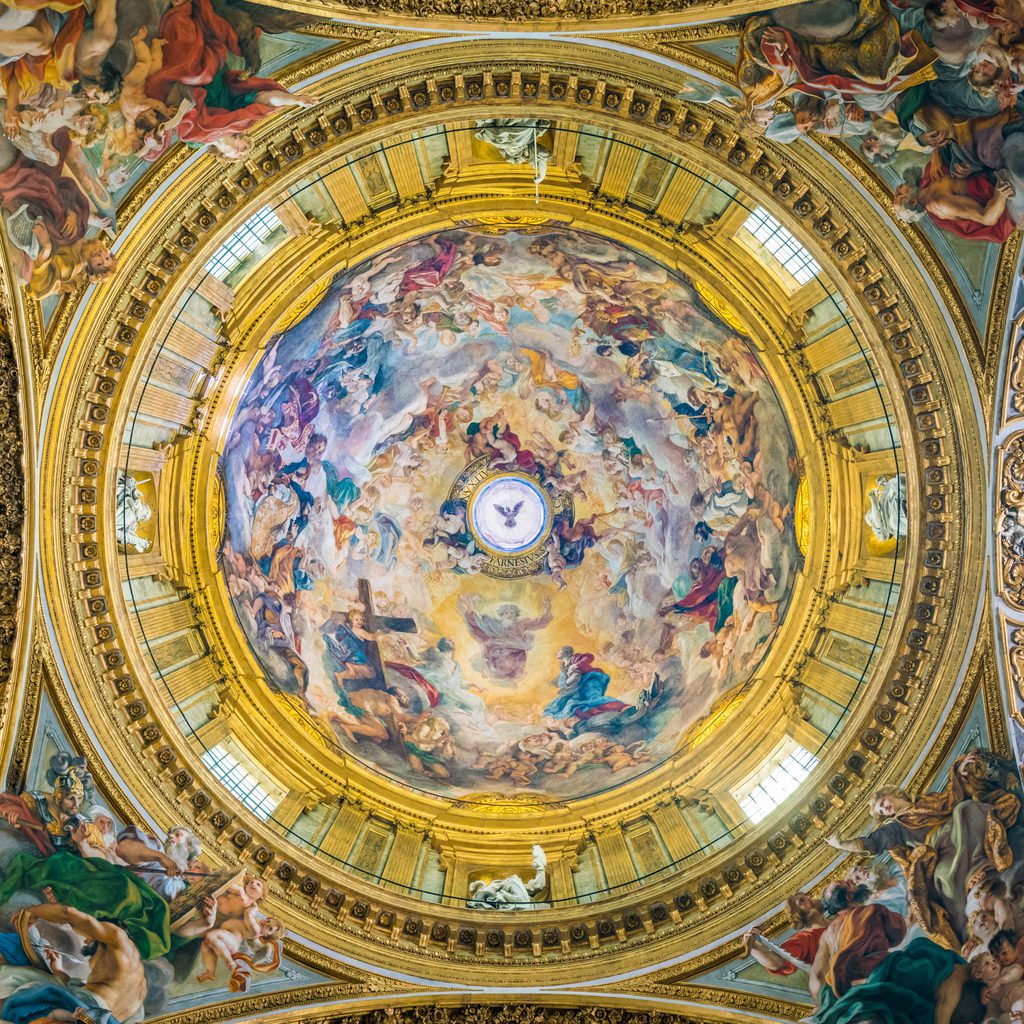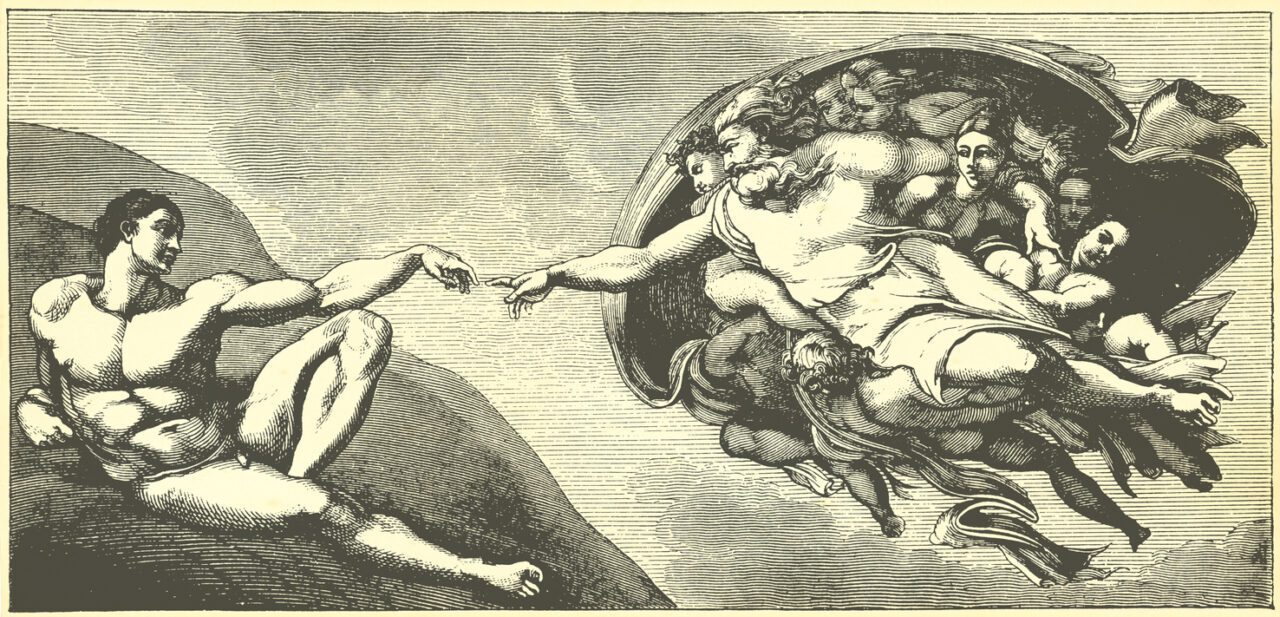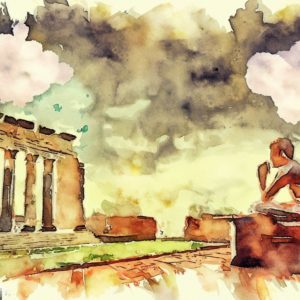Welcome back to the Logos of Experience and Truth Podcast, where I work towards unlocking the mysteries of the Beatific Vision of God.
So, I want to explain that just a little bit more in depth. . . that exact sentence of unlocking the mysteries of the Beatific Vision of God. I’ve already touched on that in the previous several episodes, but let’s try and combine them entirely into a. . . Why do I want to unlock these mysteries of the Beatific Vision for myself? What does this do? What does this cause? What will this bring me?
Obviously, if you’re unlocking something, it’s because it is locked. In our mind, our mind is locked. Our minds are entrapped. Our minds are conditioned in a certain way to be a certain way, to think a certain way, to output a certain way, to react and feel a certain way. How does one change this?
So, the modern method of this is psychology, therapy, and unfortunately heavy medication. So, the ancient way of this was through the mysteries. That’s a very negative stance right there, I’m not saying that psychology and therapy are not important things. I personally have never done any of that. I’ve never taken any psychological medicine. I’ve never been to any therapy. People have said I should at some point throughout my life because of what I talk about and think about and that it sounds pretty wacky-tacky to some people, but I know that my mind is pretty sound, I’ve just had a goal of seeking, finding, and understanding God. As wacky-tacky as that may be, especially in today’s world, that’s what was important to me, and it didn’t matter what anybody thought of me in the pursuit of this.
So, unlocking the mysteries of the Beatific Vision of God. There was a time, a long time ago, when the pursuit of the mysteries could only be qualified if some type of a vision occurred. I’m not sure if that ever did go away? When I was growing up. . . I mean, I can’t say I really was Christian, right? I know I talked about this somewhere else, but, you know, it was that Christianity because my parents are taking me. It was that kind of an idea, the Hispanic way of you are Catholic because your parents were Catholic, and you just say you are Catholic even if you’re not really Catholic. It’s a very negative way of saying it, I am not saying every Hispanic or every Catholic thinks in that way, but when you look at some of the metrics that they have when it comes to different surveys, it might be kind of like that, right?
I mean, I mean. . . many people say that they are Christians, but can you actually say they are? I mean, that has been the great criticism of Christianity from other religions. I’m thinking of Gandhi, and he was asked about Christianity, and he said, “look, if more Christians acted like Christ, I would be Christian in an instant.” And he is like, “Because you guys aren’t acting like Christ, so why do I want to be Christian?” That is that criticism when it comes to that, but, you know, it is very valid, very warranted, very difficult for somebody especially in modern times seeking to be Christian. But again, it is. . . what are you seeking when it comes to Christianity? Are you just seeking some type of a community, some type of social thing, or are you actually seeking an experience of God?
Who talks about seeking an experience of God? I’ve mean just thinking about it. . . yeah, I am hearing myself as I am talking, and I know I sound completely bonkers and yet this literally was the purpose of the mysteries in the ancient world. This was the purpose of early Christianity. . . was to provide and produce some type of an experience with the individual, with the practitioner. I mean this was the purpose of the Eucharist.
If you read some of the old Desert Father stuff. . . It is a collection of. . . after Theodosius does his edict in like 380 whatever and the Roman world becomes Christian—becomes Catholic—various people wander out into the desert in Egypt, and it is the beginning of monasticism, essentially. And there were different levels of this. There were some that were just kind of in their little enclaves, so you know what we would think of as a monastery. But then there were others who said, “I’m going out and living in a cave in the desert,” and that is why they are called the Desert Fathers. But the entire purpose of this desert experience was to become one with Christ, and this occurred in some type of an experience. Depending on the monk, the practitioner. . . however it happens and however it occurs, and that’s kind of the mystery of does doing these practices instantly bring about an experience? Or is there some type of a blessing that brings about this experience, right? So that’s kind of the difficulty of knowing is this something that can happen? Is there an actual method or process to unlock this, or is it still some type of a blessing that occurs from the invisible and in our sense in the divine world—does God have to bless us, right? And that is what is written in the catechism . . . is that this is a free gift that God gives to us.
The entire purpose of these mysteries was to provide some type of an experience to teach these mysteries. One of the Desert Father stories that I liked the most was one of the monks was suddenly doubting that the Eucharist was the actual body and blood of Christ. A very common thing in today’s Christianity if you are here in the West and you have come across any Protestant stuff, right? It is not actually the body and blood of Christ; it is just bread and water.
It’s like, ok . . . so this was tackled by these Desert Fathers back in like 400 AD out here in the desert and so, this monk is doubting this, and his brothers are like, “No, no, you got to believe in it, you got to pray on it, you got to pray,” and he’s like, “Nope, Nope, Nope. I am not taking it until I see or have something that confirms this, I just ain’t. I don’t believe in this.” And he goes to church at some point, and the priest is up there, and he is doing the sacrifice of the bread and the wine, but this monk is for some reason seeing an actual flesh and blood baby and he starts freaking out like what is going on here, cause now a knife gets brought out . . . It is like this really gruesome story. And the point is that he saw some kind of a vision that confirmed this is why it is bread and wine because it is the physical . . . it is the body and blood, but you are not going to eat the body and blood in the physical form. It is like a spiritual thing. It is something else. It is something deeper, something more mysterious. But this is how it is. And so, this is why the belief factor is in it. And so . . .
Anyways, the point of it is that it is some type of an experience is what occurs that convinces this monk in this Desert Father story that the Eucharist is the body and blood of Christ. So, these mysteries were meant to create some type of an experience to confirm. That’s literally the entire purpose of them in the ancient world and like I said, I’m not saying that this doesn’t exist anymore it’s just when I’ve read any of the current self-help stuff or when I was reading this ten to fifteen years ago, the entire purpose of it was like I need like, greater inner peace, I’m trying to, I don’t know, do law of attraction type of stuff. I am trying to bring money into my pockets. I am trying to, you know, have a meteor of diamonds coming down in front of me and suddenly I am filthy rich, and you know, it is stuff like that. And you know whether that is important to you or not is entirely up to you. I am not saying not to. I am not saying that there aren’t synchronous type of things that I have experienced . . . I . . . I talk a lot about that kind of stuff. But the purpose of the mysteries, the purpose of meditation—the ultimate purpose at least—is to essentially cleave a canyon in the mind so that you are pushing aside the left and the right—exactly what we were talking about—to move towards Logos, to move towards the Christ, the narrow path.
As long as you are analyzing good or evil, left or right—I think we talked about this in the previous episode—as long as you are still thinking about these types of binary, dualistic type of things, then you are being controlled by them in your very mind. And so, cleaving asunder all of this to seek and find Christ, the truth of Christ, the truth of that, and obviously even that brings in some binaries of truth versus false, real versus not real, right. So, you are kind of dealing with these types of things and the way to deal with that is when you really start asking yourself: what is real? What is truth? Those hard, ancient Socratic type of questions of well, what is real? And that is something else I speak a lot about in terms of the maya and understanding the neurological aspect of this, of what’s occurring in the mind. What do you see when you see and how is what you are seeing produced to give you what you are seeing? And is that anything that you are doing consciously or is it occurring entirely on its own? And that is the maya since you are not actually consciously telling yourself to listen to this. If you are listening to this, you are listening to it and somehow your brain is interpreting all the words in an instantaneous manner. But you may not be understanding it the way I understand it. You may not be understanding the meaning of it as I understand it and that is a level of filtration in your mind and brain that is occurring on its own. And I can only do so much to try and impart these mysteries and the knowledge of these mysteries onto you. But your pursuit of them is something entirely different. Your contemplating them is entirely different, your thinking and seeking to understand them and if your desire is to cleave a Grand Canyon in your mind so that you can walk through your mind safely and peacefully and find your actual and true self . . . that is the unlocking of the mysteries of the Beatific Vision of God.
And the Beatific Vision itself of course, as I stated, I cannot really say whether your constant meditation will bring it about or not. There are many different examples . . . I was just . . . I read some story with some Buddhist monk from . . . I don’t know long ago. He was trying to teach enlightenment to somebody, and he kept telling this student look, “You’ve already reached it. Why are you unhappy?” And I guess the guy had told him, “You know, well, I wanted a family. I wanted a house. But, you know, I came in search of this, and I am miserable.” And so, the teacher finally just bought this guy a house, and was like, “Dude, go live in the house and be happy and be enlightened.” And that was what the guy did.
You really have to know what it is you are seeking and that can be difficult, especially if you are utterly trapped in the mire of your own mind and if you are utterly distracted by everything that the world is distracting you with, and if you have never questioned these types of things. So hopefully by listening to this, your mind is now questioning these different types of things if you have never even thought of them before. But this is the reason, A: why the mysteries existed . . . this is the reason, B: why they were hidden from the majority of people. As I said, they used to be the possession of the elite and they still kind of are because you really have to dig through absolutely everything on the Internet to sit here and want to listen to something on Logos, right? Or unlocking the mysteries of the Beatific Vision of God. I mean, if you have gotten this far, then you have probably been able to penetrate your own mind and thoughts and all the distractions that exist in the world to distract you and that is quite an achievement. But to dive deeper into that requires a different level of focus and meditation of cleaving through and letting go of the left and the right, of finding that middle ground. That was one of the noble truths of the Buddha, for instance, because that is when and where equilibrium is, when you can stand above and be beyond the left or the right . . .the wide-open path . . . having found the narrow path in understanding that finding that narrow path, finding that Logos within your own mind, within your own self, that is the finding of Christ within you, because made in the Image of Christ . . . that is the Image of Christ and the Image of Christ is some weird type of reflection of Christ in reality. And Christ being the Mind of God is the creator of that.
And that is when you get into the whole language from the Gospel of John of, “I am in you, and you are in me, and I am in the Father and together we are in you.” That is the knowledge of that. That is the understanding of that. And if you can get to that, if you can understand that the path might be a little bit easier to get to.
That is what unlocking these mysteries of the vision are and what I am hoping to achieve in aiding you on your spiritual path.
I will leave it at that. Until next time.





